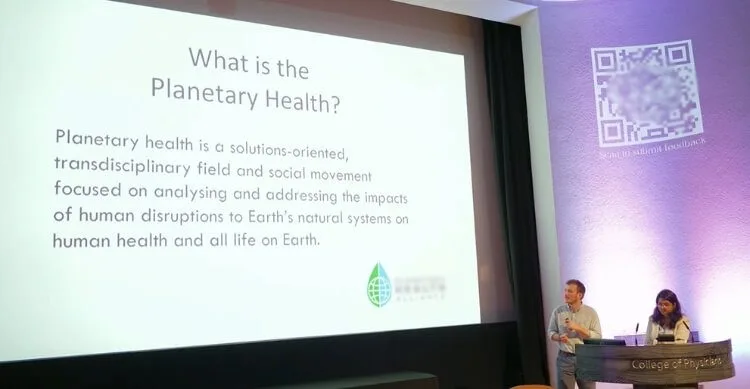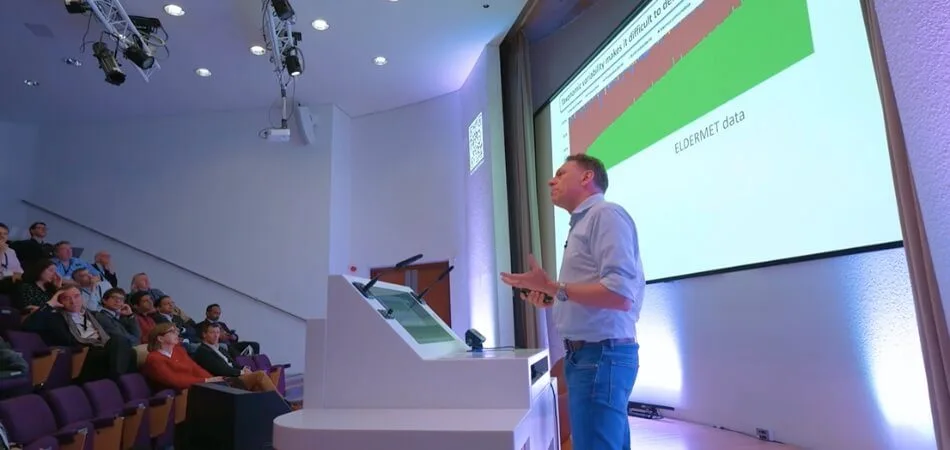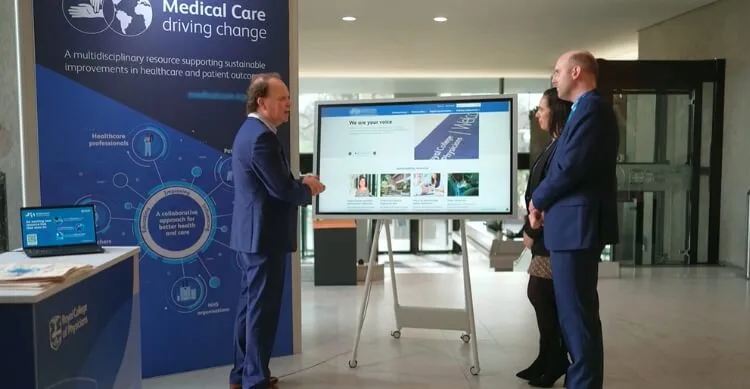Doctors conferences serve as important events in the medical field, where healthcare professionals gather to exchange knowledge, discuss advancements, and collaborate on improving patient care. But people who are new to this field often ask: Why do doctors have conferences?
Basically, doctors have conferences to share the latest medical research, advancements, and best practices. These gatherings help promote collaboration among medical professionals, allowing them to exchange ideas and experiences. Conferences also provide opportunities for networking and continuing medical education, ensuring doctors stay updated in their fields.
However, there are numerous benefits hidden within every type of conference, and the same applies to those doctors. Keep reading this blog to explore the exceptional benefits you will gain from attending doctor conferences. These conferences will introduce you to various opportunities to expand your knowledge and promote collaboration.
What is Doctor’s Conferences?
Doctor’s conferences are gatherings where medical professionals convene to share knowledge, discuss advancements, and collaborate on improving patient care. These events provide opportunities for doctors to learn from experts, present their research findings, and network with peers in their field.
From specialized conferences focusing on specific medical disciplines to larger, interdisciplinary gatherings, doctor’s conferences play a crucial role in advancing medical practice and driving innovation in healthcare delivery.
Why Do Doctors Have Conferences?
You might be wondering: Why do doctors have conferences? It’s okay because here you will find everything you need to know. A doctor conference comes with many advantages for a doctor and those who are studying in this field. Here are the main reasons why doctors have conferences:
Historical Perspective
The origins of medical conferences can be traced back to early gatherings of physicians, where they convened to discuss medical knowledge and practices.
Over time, these gatherings evolved into formalized conferences, with key milestones including the establishment of medical societies and the emergence of large-scale international meetings.
Knowledge Exchange and Collaboration
Medical conferences play a crucial role in facilitating the exchange of knowledge and ideas among doctors. They provide valuable opportunities for collaboration and networking within the medical community. By sharing expertise, research findings, and clinical experiences, doctors can enhance their understanding and contribute to advancements in patient care.
Continuing Medical Education (CME)
Conferences are essential for the ongoing education and professional development of doctors. They offer a platform for learning about the latest research, medical advancements, and best practices in various fields of medicine.
Staying updated through conference attendance ensures that doctors can deliver high-quality care and remain at the forefront of their specialties.
Research and Innovation
Conferences serve as vital platforms for presenting new research findings, innovative treatments, and technological advancements in medicine. They showcase groundbreaking discoveries that have the potential to revolutionize healthcare.
By inculcating a culture of innovation and collaboration, conferences drive progress in medical research and patient care.
Specialized Conferences and Subfields
Medical conferences cater to a diverse range of specialties and subfields, addressing specific areas of medical practice and research. These specialized gatherings deepen knowledge and expertise in particular areas of medicine through focused discussions and presentations.
By bringing together experts in niche fields, specialized conferences advance medical understanding and improve patient outcomes.
Global Impact and Outreach
Medical conferences have a global reach, promoting collaboration and knowledge exchange across borders. They play a crucial role in addressing global health challenges and promoting best practices in healthcare delivery.
Initiatives aimed at increasing access to conferences for doctors in underserved regions ensure equitable opportunities for learning and professional development.
Challenges and Future Outlook
Despite their many benefits, medical conferences face challenges such as accessibility barriers and funding constraints. Addressing these challenges is crucial for ensuring that conferences remain inclusive and accessible to all doctors.
Looking ahead, innovations in conference formats and delivery methods will shape the future of medical education and collaboration.
What are the Benefits of Doctor’s Conference?
Doctor’s conferences are not just gatherings, but they’re crucial opportunities for professional development and staying at the forefront of the ever-evolving medical landscape. Let’s explore the multifaceted benefits these conferences offer.
- Networking Opportunities: Conferences provide a platform to connect with peers, share experiences, and establish collaborations, as well as a supportive professional network that can offer guidance and assistance.
- Continuing Education: By attending conferences, doctors have access to workshops, lectures, and presentations by experts, allowing them to stay updated on the latest research findings and evidence-based practices.
- Exposure to Innovation: Conferences showcase cutting-edge technologies, treatments, and research breakthroughs, inspiring doctors to integrate innovative approaches into their clinical practice for better patient outcomes.
- Professional Growth: Conferences expose doctors to diverse perspectives and methodologies, enabling personal and professional growth. Engaging with a variety of medical approaches broadens their understanding and enhances their adaptability in different clinical scenarios.
- Research Dissemination: Presenting research findings at conferences not only contributes to the scientific community but also provides doctors with a platform to share their insights. This exchange of knowledge fuels advancements in various medical fields, elevating the overall standard of patient care.
- Peer Recognition: Conferences offer a stage for doctors to showcase their expertise, leading to increased visibility and recognition among peers. This acknowledgment not only boosts professional confidence but also opens doors for collaboration and leadership opportunities.
- Enhanced Patient Care: The knowledge gained from conferences directly translates into improved patient care. From adopting innovative treatments to implementing evidence-based practices, doctors can apply the latest insights to ensure optimal outcomes for their patients.
- Global Perspectives: International conferences expose doctors to global healthcare challenges, diverse cultural practices, and varied healthcare systems. This global perspective enriches their understanding, encouraging the adoption of best practices from around the world.
You will get these benefits from attending a medical conference. So, it’s obviously a worthwhile investment.
Frequently Asked Questions
Doctor conferences serve as essential platforms for medical professionals to exchange knowledge, collaborate, and stay updated in their respective fields. Here are FAQs you can check out for more relevant information:
Why Do Doctors Attend Conferences?
Doctors attend conferences to stay updated on the latest research, advancements, and best practices in their field. These gatherings also provide networking opportunities and encourage collaboration among peers.
What Benefits Do Doctors Gain from Attending Conferences?
By attending conferences, doctors gain valuable insights, expand their professional network, and enhance their clinical skills. They also have the opportunity to present their research findings and contribute to medical advancements.
How Do Conferences Contribute to Doctors’ Professional Development?
Conferences offer workshops, seminars, and lectures that help doctors expand their knowledge and improve their clinical practice. Engaging with peers and experts encourages continuous learning and skill development.
Are Conferences Essential for Doctors’ Continued Education?
Yes, conferences play a crucial role in providing continuing medical education (CME) credits for doctors. These credits are necessary for maintaining licensure and staying updated on medical advancements and best practices.
What Role Do Conferences Play in Promoting Collaboration Among Doctors?
Conferences provide opportunities for doctors to collaborate on research projects, share experiences, and exchange ideas. Through networking and discussions, doctors can form partnerships and tackle healthcare challenges together.
How Do Conferences Contribute to Patient Care?
The knowledge and skills gained from conferences directly impact patient care by enabling doctors to provide evidence-based treatments and interventions. Conferences also facilitate the adoption of innovative practices for better patient outcomes.
Do Conferences Have a Global Impact on Healthcare?
Yes, conferences have a global reach and influence on healthcare by encouraging collaboration among doctors from different countries. They facilitate the sharing of best practices and contribute to improving healthcare worldwide.
Conclusion
The significance of doctor conferences cannot be overstated. These gatherings serve as vital hubs for medical professionals to exchange knowledge, collaborate on research, and stay updated on the latest advancements in healthcare.
From networking opportunities to continuing education, conferences offer a myriad of benefits that contribute to doctors’ professional growth and enhance patient care.
So, why do doctors have conferences? It’s simple: to ensure they remain at the forefront of their fields, equipped with the latest insights and tools to deliver the best possible care to their patients. By actively participating in conferences, doctors not only enrich their own practice but also contribute to the collective advancement of medicine on a global scale.








